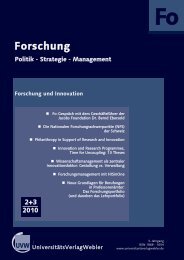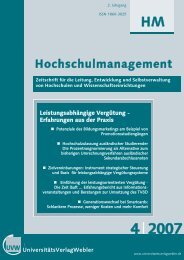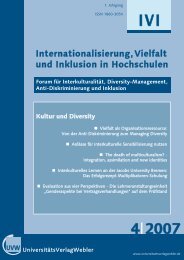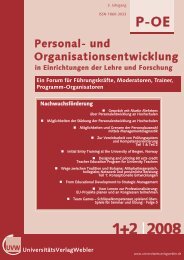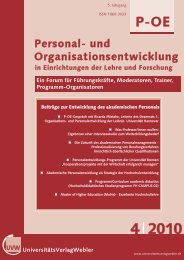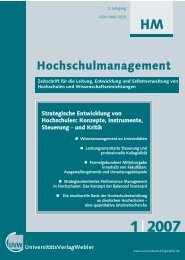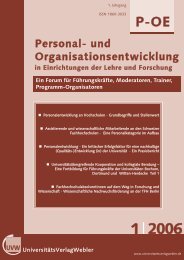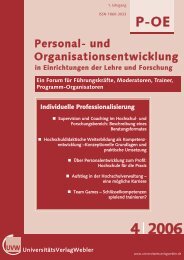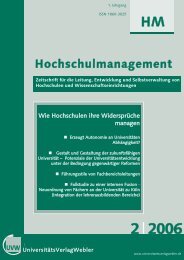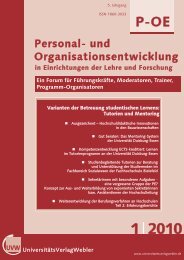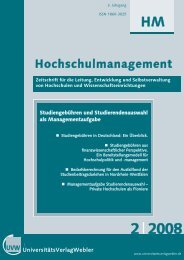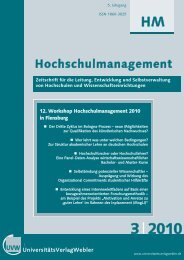Fo - UniversitätsVerlagWebler
Fo - UniversitätsVerlagWebler
Fo - UniversitätsVerlagWebler
Sie wollen auch ein ePaper? Erhöhen Sie die Reichweite Ihrer Titel.
YUMPU macht aus Druck-PDFs automatisch weboptimierte ePaper, die Google liebt.
<strong>Fo</strong><br />
S. Nikolova • On the use of “Lingua Franca” and local languages in the publications ...<br />
languages in the world, and none is without meaning; 11<br />
But if I do not know the meaning of the languages, I shall<br />
be a foreigner to the speaker and the speaker a foreigner<br />
to me.<br />
2. 14:37 If any one thinks that he is a prophet, or spiritual,<br />
he should acknowledge that what I am writing to you is<br />
a command of the Lord. 38 If any one does not recognize<br />
this, he is not recognized. 39 So, my brethren, earnestly<br />
desire to prophecy, and do not forbid speaking in<br />
tongues.<br />
During the Middle Ages in Christendom however, people<br />
began using ever more a limited number of languages in<br />
their writing. It was in that period that there arose the<br />
theory about the three sacred languages – Hebrew, Greek<br />
and Latin, which were on the cross of Jesus Christ. According<br />
to that theory only these languages had the right to be<br />
used in writing. This theory was even called „heresy“ in the<br />
world of Slavdom, even though it was never adopted or imposed<br />
officially by the Western Church and it had nothing<br />
to do with the dogmas of Christianity. Independent of that,<br />
however, in Western and Central Europe and in a part of<br />
the Western Balkans it was then that Latin established itself<br />
as a lingua franca and was used everywhere in writing as<br />
late as the 19th century in the territories under the jurisdiction<br />
of the Roman Catholic Church and became the universally<br />
recognized language of research, including research in<br />
the area of Humanities.<br />
During the same period there began also the struggle<br />
against monolingualism for the right of every nation to develop<br />
their written culture in their own language. Basing his<br />
arguments on the biblical texts quoted above and on the<br />
Gospel according to Matthew 5:45 Constantine-Cyril, the<br />
creator of the Slavonic alphabet, defended in 868 this right.<br />
The author of the Vita of Cyril wrote: “When he was in Venice<br />
bishops, priests and monks rallied against him like<br />
crows before a falcon and voiced the three-language heresy<br />
saying: tell us, o man, how do you write now books for the<br />
Slavs and how do you teach them? So far nobody has created<br />
such books – neither the apostles, nor the pope of<br />
Rome, nor Gregory the Theologian, nor Jerome, nor Augustin.<br />
We know only three languages in which it is proper to<br />
glory God by means of books: Hebrew, Greek and Latin”.<br />
And the Philosopher replied: “Does not rain fall from God<br />
equally for the benefit of all? Also does not the sun shine on<br />
all (according to Matthew 5:45). Do we not all breathe air?<br />
Are you not ashamed when you choose only three languages<br />
leaving all other tribes and nations to be blind and<br />
deaf? Tell me: Do you think that God is powerless and cannot<br />
give that or you consider Him to be envious and not to<br />
want to do that? But then we know many nations that have<br />
books and glorify God each nation in its own language. It is<br />
known that such nations are the Armenians, the Persians,<br />
the Abasgs, the Iberians, the Sugds, the Goths, the Avares,<br />
the Tirsians, the Khazars, the Arabs, the Egyptians, the Syrians<br />
and many other nations ... “With these words and with<br />
other stronger one he brought shame on them, „left them<br />
and went away” (after Matthew 16:4). Already then as a result<br />
of that struggle, which went on with varying success<br />
among the different Slavonic tribes and nations (in the 9th<br />
century did not have big differences between their languages),<br />
the majority of them began using a fourth literary<br />
language based on the language they spoke in that time. Of<br />
course, with the passage of time it began to drift away in<br />
different degrees from the spoken language in the different<br />
regions were it was used, but it still remains closely linked<br />
with the separate national languages that emerged later.<br />
Be as it may, after the epoch of the Renaissance the use of<br />
the separate national languages expanded ever more in all<br />
spheres of public life in all regions of Europe. Today however<br />
in the epoch of globalization, the process develops in<br />
the opposite direction. In most cases the language that is<br />
used and that replaces the other languages establishes itself<br />
in a natural way depending on the historical and contemporary<br />
causes for its bigger dissemination as a spoken language<br />
and gradually it begins playing the role of a lingua<br />
franca. It is no secret that English is this language today. The<br />
processes developing in publishing activities in the field of<br />
the Humanities take place in full in the same area. That is<br />
why we speak today about the problems of the “lesser<br />
used” languages in the publications in the sphere of the Humanities<br />
and about the use of English as a lingua franca in<br />
them.<br />
It seems to me though that before speaking about the use<br />
of a lingua franca and local languages, which are usually<br />
“lesser used” languages, we must be clear about what we<br />
understand under the concept “lesser used” languages.<br />
Where is the borderline between the languages that are<br />
used more and the “lesser used” languages and on the basis<br />
of what criteria is the borderline fixed? Is a “lesser used”<br />
language one that is spoken by say 40, 30, 20, 10, 5, 3 or 1<br />
million people or less, while it is a language that has a research<br />
tradition in the Humanities, a tradition developed over<br />
centuries, and is it “lesser used” than a language spoken by<br />
say 100, 200, 300 million people or more, a language that<br />
has naturally more publications in our time? I cannot answer<br />
that question.<br />
I could only say that logic demands that we discuss the problem<br />
as to the use of a lingua franca and local languages in<br />
the Humanities in the sphere of European Research area we<br />
ought to take into consideration in that respect the official<br />
documents of the European Union. As far as I know there is<br />
no and there cannot be any rule or law in any European<br />
state that makes it obligatory for people not to write their<br />
works in a local language, but only in foreign languages and<br />
there is not any rule or law in the opposite sense. On the<br />
contrary, there are 23 official languages in the EU and three<br />
official alphabets - Latin, Greek and Cyrillic. They are considered<br />
by the European institutions to be an impulse for dialogue<br />
and integration. Article 22 of the EU's charter of fundamental<br />
rights, adopted in 2000, requires the EU to respect<br />
linguistic diversity and art. 21 prohibits discrimination<br />
based on language. Together with respect for individuals,<br />
openness towards other cultures, tolerance for others, and<br />
respect for linguistic diversity is a core EU value. This principle<br />
applies not only to the 23 official EU languages, but also<br />
to the many dialects and minority languages spoken by segments<br />
of its population. It is this that makes the EU what it<br />
is - not a 'melting pot' that reduces differences, but a place<br />
where diversity can be celebrated as an asset. According to<br />
the Treaty of Lisbon (Article 2), signed by the heads of state<br />
of all EU member-states now, the EU shall respect its rich<br />
<strong>Fo</strong> 3+4/2009<br />
97



